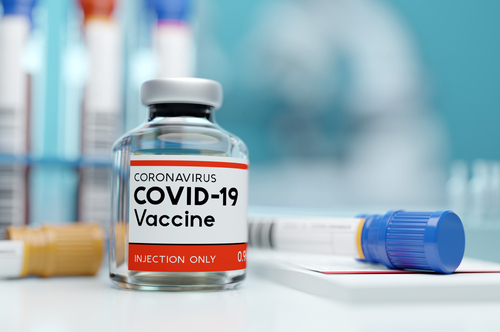 As Congress considers the potential impact of a COVID-19 vaccination, employers will likely have many questions and issues associated with the vaccine.
As Congress considers the potential impact of a COVID-19 vaccination, employers will likely have many questions and issues associated with the vaccine.Existing Legislation
Earlier this year, Congress enacted the Coronavirus Aid, Relief, and Economic Stimulus Act (the CARES Act) that requires coverage of COVID-19 vaccines. It also called on HHS, DOL, and the Treasury Department to draw up regulations requiring group health plans to cover (without cost-sharing and within 15 days of the recommendation) any qualifying COVID-19 preventive service. The Tri-Agencies released additional regulations in November, and earlier this month MedBen clients received updated plan amendments which include the changes required by those regulations as they pertain to COVID-19 vaccines.
As the COVID-19 vaccination becomes available as a means to avoid pandemic-related shut-downs and potential related COVID-19 spread, employers will have to determine whether they will require employees be vaccinated. There are a variety of questions surrounding the vaccine and its effectiveness, and some individuals may express a reluctance to be vaccinated. In certain high-risk workplaces, such as hospitals and nursing homes, existing vaccination requirements (non-COVID-19) are already part of the job. However, the question becomes more complicated for employers not involved in health care.
Federal Regulation
On December 16, 2020, the Equal Employment Opportunity Commission (EEOC) revised its publication entitled “What You Should Know About COVID-19 and the ADA, the Rehabilitation Act, and Other EEO Laws” by updating questions and answers regarding vaccines. Although additional guidance is offered, the EEOC’s position regarding COVID-19 vaccinations remains the same as it has for other employer vaccination mandates. This means that an employer cannot require that an employee be vaccinated against COVID-19 if it would otherwise violate the employee’s rights under the Americans with Disabilities Act (ADA) or Title VII of the Civil Rights Act of 1964 (Title VII).
In particular, employers should be aware that the EEOC does not consider the administration of a COVID-19 vaccine to an employee a “medical examination” under the ADA. However, pre-screening vaccination questions to employees may prompt the application of the ADA’s rules regarding disability-related inquiries. If an employer must ask certain questions before it can determine if vaccinations should be required, the employer must show that the questioning is “job-related and consistent with business necessity.”
To move forward with mandated vaccinations, an employer must establish that the unvaccinated employees are a “direct threat” to the workplace. And even then, the employer cannot exclude such an employee from the workplace – or take any other action – without providing the employee with a reasonable accommodation.
When considering the situations that might arise where employers receive a COVID-19 vaccination accommodation request, employers should familiarize themselves with ADA or Title VII. Under the ADA, a reasonable accommodation is required unless it would create an undue hardship to the employer. The EEOC has confirmed that under the ADA, an employee with an underlying medical condition could be entitled to an exemption from mandatory vaccination for valid and supported medical reasons.
Other issues employers should take under consideration include employer liability for injuries to employees who have adverse reactions to the vaccine, and/or potential complications with collective bargaining agreements that may not allow enforcement of such policies without union consent. In addition, employers should be aware that Title VII provides employees with an exception to mandatory vaccination based on medical concerns, and that employers will also be required to provide a reasonable accommodation to employees who refuse to be vaccinated due to a religious belief, practice, or observance.
Current Court Cases
It is also important to note that the U.S. Supreme Court has stated that mandatory vaccinations are subject to individual state police powers. In Jacob v. Massachusetts, the high court held that “mandatory vaccinations are supported by the authority of the state police power when the vaccinations are necessary to protect the health of the community.” Some states are currently assessing the need to require mandatory vaccination through legislation.
Next Steps
So as an employer, what should you do? First, make sure your employees know that you are operating your business in a safe way – consistent with CDC guidance and protection measures – and that you are in compliance with the CARES Act. You can also be a resource to your employees if they have questions. Your local health department, and an employee’s own physician, can provide them with information on the vaccine and how they might best protect themselves and their families.
MedBen clients who would like to discuss these issues or need more information may contact Senior Vice President Caroline Fraker at 800-851-0907 or cfraker@medben.com.
